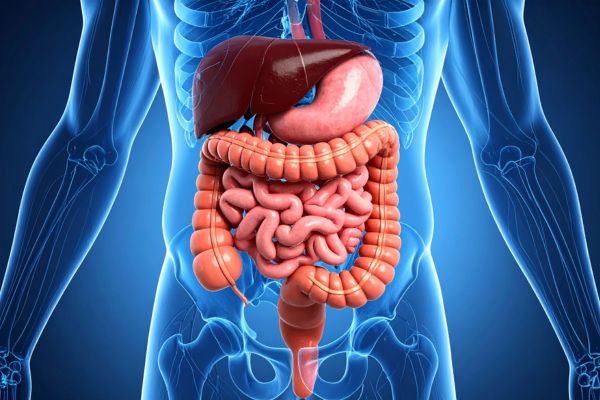Digestive issues have a sneaky way of showing up at the worst times. One moment you’re enjoying your favorite meal, and the next, you’re clutching your stomach wondering what went wrong. If you’ve been trying to make sense of digestive discomfort, bloating, cramps, or just that “off” feeling in your gut, you’re not alone. Millions deal with digestive issues every day, and understanding digestive disorders causes is one of the first steps toward getting relief.
Let’s be real — the digestive system is complicated. It’s like this silent engine working behind the scenes, and you don’t really notice it until something goes off track. The thing is, there’s usually a reason your gut is acting up. Sometimes it’s obvious, sometimes it’s subtle, but it always matters.
In this article, we’re going to walk through the most common digestive disorders causes in a down-to-earth, conversational way — so you can finally understand what your body might be trying to tell you.
How Lifestyle Habits Trigger Digestive Problems
When it comes to digestive disorders causes, lifestyle is often the biggest culprit. And honestly, most of us know it deep down. That fast-food dinner, the third cup of coffee, or skipping meals because the day got too busy — it all adds up.
A poor diet is one of the top triggers. Diets high in processed foods, sugar, unhealthy fats, and low in fiber can slow digestion and irritate the lining of the gut. Your digestive system loves balance, and when it’s constantly dealing with junk, it starts to push back. You know that sluggish, heavy feeling after eating something greasy? That’s your gut saying, “Why did you do this to me?”
Stress is another huge factor. Maybe even bigger than people realize. Stress hormones like cortisol can interfere with digestion, slow down nutrient absorption, and even alter the natural balance of gut bacteria. Ever had stomach cramps during a stressful week? Exactly.
Then there’s the lack of physical activity. Movement helps food travel through the digestive tract, so when we sit for long periods — which most of us do more than we should — digestion slows down. That can lead to constipation, bloating, and overall discomfort.
Smoking, alcohol, and even poor sleep patterns also fall under lifestyle-related digestive disorders causes. These habits can weaken the digestive system, inflame your GI tract, and disrupt the normal rhythm your gut relies on.
The Role of Food Sensitivities and Intolerances
Some digestive issues aren’t about unhealthy habits at all — they’re about the way your body reacts to certain foods. Food intolerances are surprisingly common, and they can cause symptoms that range from mild discomfort to full-blown pain.
Lactose intolerance, for example, is one of the most widespread food-related digestive disorders causes. When your body doesn’t produce enough of the enzyme needed to digest lactose, dairy becomes your enemy. Bloating, gas, and cramps become the usual aftermath.
Gluten sensitivity or celiac disease is another frequent trigger. Even tiny amounts of gluten can set off inflammation, damage the lining of the intestines, and lead to nutrient deficiencies.
Then there are more subtle sensitivities — things like artificial sweeteners, spicy foods, caffeine, or even high-fiber foods depending on your gut health. Everyone’s body is different, and sometimes the only way to figure out your trigger is by paying close attention to what you eat and how your body responds.
Gut Imbalances and the Microbiome Factor
Your gut is home to trillions of microbes — yes, trillions with a “t.” These bacteria help digest food, support immunity, produce vitamins, and even influence your mood. Wild, right? When this microbiome gets out of balance, digestive issues are almost guaranteed.
Antibiotics are a major disruptor. They’re life-saving when needed, but they can wipe out good bacteria along with the harmful ones. That sudden imbalance is one of the overlooked digestive disorders causes, leading to diarrhea, yeast overgrowth, or long-term gut sensitivity.
A poor diet, chronic stress, lack of sleep, and artificial additives can also mess with your microbial balance. When the bad bacteria overpower the good, it creates a perfect environment for bloating, constipation, and inflammation. Sometimes you may not even realize the issue is coming from deep inside the gut’s ecosystem — but it often is.
Underlying Medical Conditions You Should Know About
Not all digestive problems are lifestyle-related. Many stem from underlying medical conditions that require proper diagnosis and treatment. Conditions like GERD (gastroesophageal reflux disease) are among the top medical digestive disorders causes. This happens when stomach acid frequently flows back into the esophagus, causing heartburn, burning sensations, and sometimes difficulty swallowing.
Irritable Bowel Syndrome (IBS) is another common condition. The symptoms vary — some people deal with constipation, others with diarrhea, and some with both. The exact cause of IBS is still not fully understood, but triggers include stress, gut sensitivity, and certain foods.
Inflammatory Bowel Disease (IBD), which includes Crohn’s disease and ulcerative colitis, is more serious. These conditions involve chronic inflammation in the digestive tract and can lead to long-term damage if not treated.
Gallbladder issues, pancreatitis, peptic ulcers, and infections like H. pylori also fall under health-related digestive disorders causes. These conditions often require medical care, so persistent or severe symptoms should never be ignored.
How Medications Can Disrupt Your Digestive Health
Medication side effects are something many people overlook. But lots of common drugs can interfere with digestion. Pain relievers like ibuprofen and aspirin can irritate the stomach lining. Antibiotics, as mentioned earlier, disrupt gut bacteria. Some antidepressants and blood pressure medications can slow down or speed up digestion.
Even supplements — the ones we assume are always safe — can cause digestive discomfort in high doses. Iron, magnesium, and certain herbal blends are known to cause gas, cramps, or diarrhea.
So if you’ve been experiencing unexplained symptoms, take a moment to look at what you’re taking daily. Sometimes the answer is hiding in plain sight.
Aging and Natural Body Changes
As we age, our digestive system doesn’t work exactly the same way it used to, and that’s normal. The muscles in the digestive tract may slow down, leading to constipation or slower food movement. Stomach acid levels can decrease too, making it harder to break down food properly.
These natural changes are subtle but very real digestive disorders causes, especially for people over 50. And while aging is unavoidable, understanding these changes helps you adapt and support your gut better.
Environmental Factors You Might Not Expect
Believe it or not, even your surroundings can affect digestion. Polluted air, contaminated water, and exposure to chemicals can irritate the digestive tract. Traveling to a new country, eating unfamiliar foods, or encountering different bacteria can also trigger short-term digestive problems.
Sometimes it’s as simple as eating too fast or rushing through meals. When you don’t chew well or eat mindlessly, your stomach ends up working harder, increasing the chances of discomfort.
Final Thoughts: Listen to What Your Gut Is Telling You
At the end of the day, understanding digestive disorders causes is really about paying attention — to your habits, your stress levels, your food, and your overall well-being. Your digestive system doesn’t act up without a reason. It’s always trying to communicate, even when the message feels confusing or frustrating.
If you’re dealing with recurring symptoms, start by observing your lifestyle and the patterns around your discomfort. Sometimes small changes make a big difference. And if things feel severe or persistent, don’t hesitate to reach out to a healthcare professional. Your gut health affects everything from your energy to your mood, so it deserves real care.
A happier gut leads to a happier you — and that’s something worth working toward.





